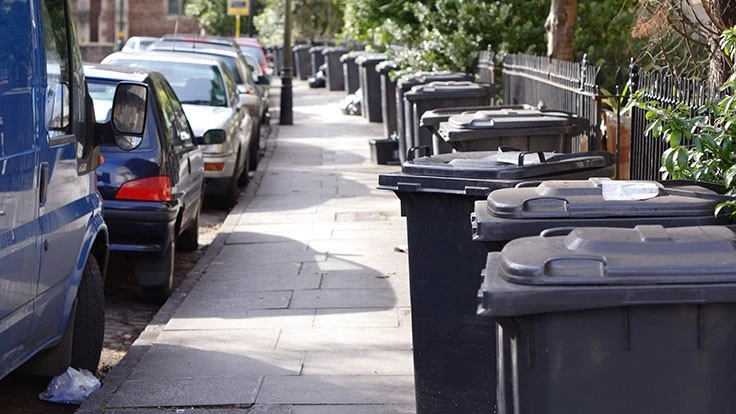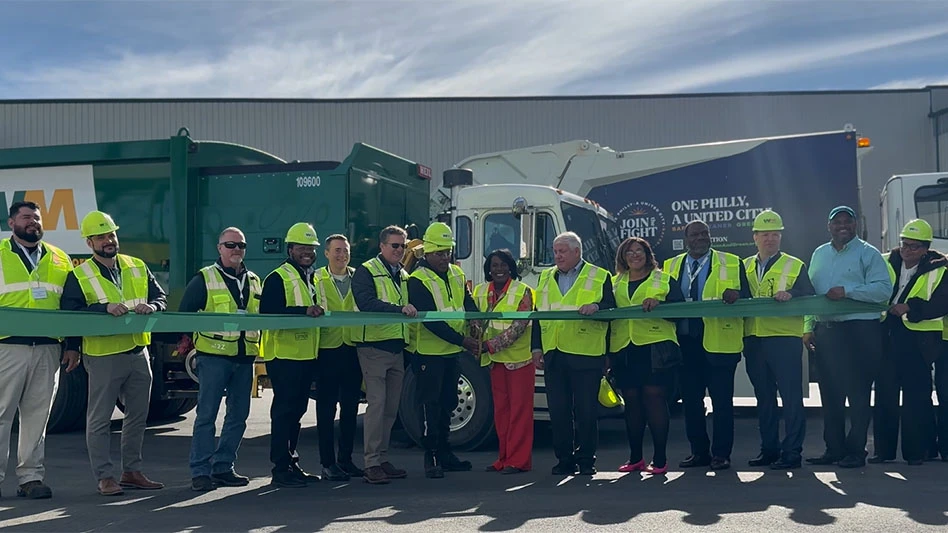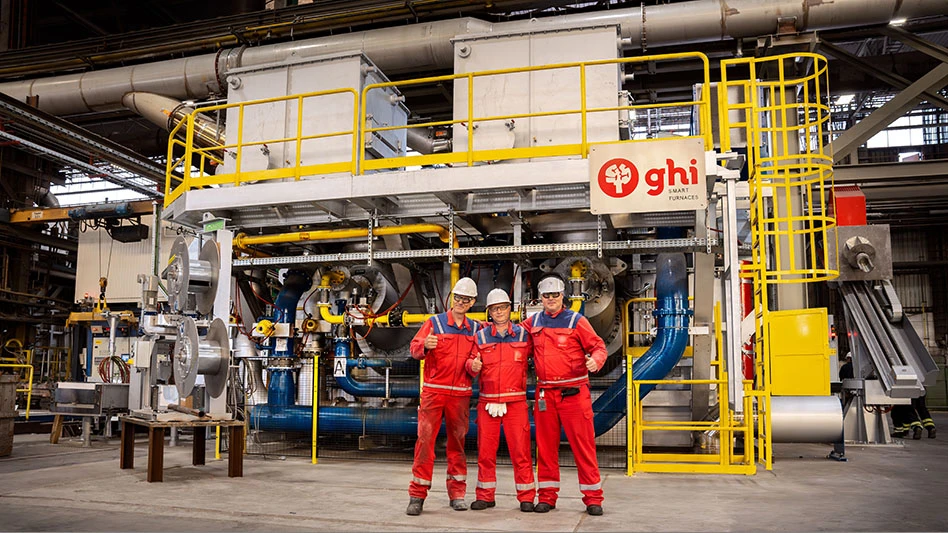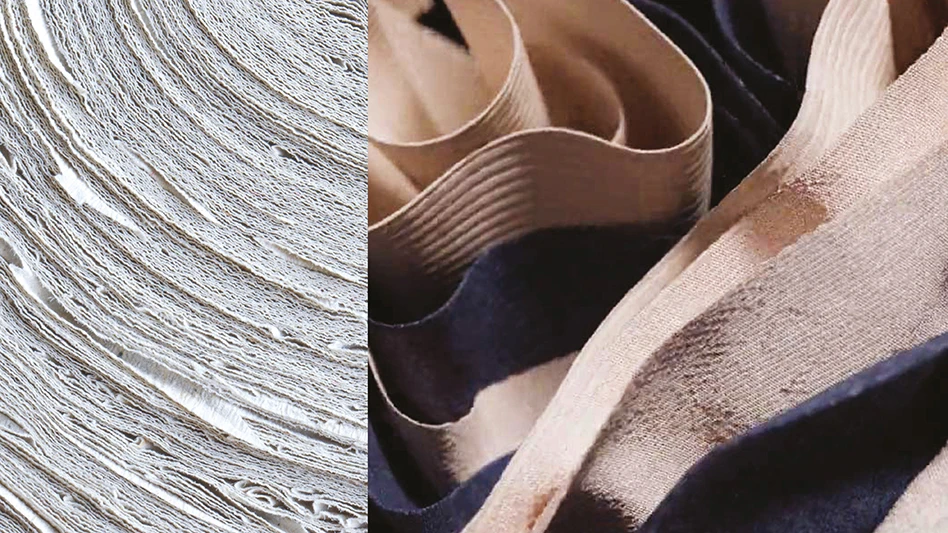
Indiana Recycling Coalition, alongside government officials, residents and manufacturers, is pushing to deliver curbside recycling to all Indianapolis residents by 2025 with hopes to boost recycling in the city.
The nation’s 14th largest city lacks a universal residential curbside program. Currently, curbside recycling is subscription-based. According to the Indianapolis universal curbside recycling analysis final report, Indy has a 4 percent residential recycling rate and a 10 percent participation rate. Allyson Mitchell, executive director of Indiana Recycling Coalition, says the Indy recycling issue stems from when the city decided to build an incinerator in 1981. When every county in the state went on to form solid waste management districts and create waste management and recycling programs, Indianapolis officials committed to burning most of the city’s waste.
“I grew up in Greensburg, Indiana,” Mitchell says. “In my town, they have curbside recycling, as well as drop-off locations. They have a solid waste management director. It is interesting to see my smaller town do a better job
“When we built the incinerator several decades ago, that sent the wrong message in terms of
Covanta's Indianapolis waste-to-energy facility processes 2,175 tons of municipal solid waste (MSW) per day, according to its website. Covanta says it's one of the largest recyclers in Indianapolis, recovering more than 17,000 tons of metal per year.
Mitchell says 2025 is "meaningful date" for recycling in Indy because contracts for the incinerator and other solid waste and recycling contracts are up for renewal.
The Office of Sustainability, in collaboration with Mayor Joe Hogsett, government agencies and departments, created Thrive Indianapolis, the city’s first sustainability plan, centered around achieving "ambitious" actions by 2025. An element of the plan focuses on waste and recycling. One objective of the plan is to provide universal residential curbside recycling to all Indianapolis residents by 2025, as well as offering subscription curbside composting to all residents. The plan gained momentum last week when it was adopted by the Metropolitan Development Commission (MDC).
“That is a great first step towards its implementation,” Mitchell says. “As an adopted part of the city’s comprehensive plan, it lives on beyond administration changes and future administrations are bound by its contents and goals.”
Mitchell says the coalition will launch educational campaigns on recycling and composting leading up to 2025 to prevent contamination. Whereas municipalities struggled with contamination when recycling programs switched from dual-stream to single-stream collection, Indianapolis has a “clean slate," she says.
“We have the opportunity to design a program from the ground up that prevents contamination,” Mitchell says. “What that looks like is a comprehensive education campaign that we’ll start well before the carts hit the ground, and that will be consistent.”
According to
Indianapolis is a hub for manufacturers that rely on materials, such as glass and plastic, for production. Strategic Materials, which accepts glass from material recovery facilities and recycles 3 million tons of glass per year, operates in
Other manufacturers, such as Pratt Industries, which produces packaging from recycled paper and cardboard, also have trouble sourcing material from the region. Mitchell says Indy has the end market infrastructure to form a closed loop system, in which recyclables could be collected and recycled in the city and used to make new products. In addition, the system wouldn’t be impacted by import bans in China and Southeast Asia.
“It should be a situation where we’re not only managing our own recyclables, but we’re importing,” Mitchell says. “We should be the solution to the lack of end markets in the Midwest. We have processors and manufactures for all major commodities in the state.”
If universal curbside recycling is brought to Indy by 2025, new opportunities for waste and recycling companies will arise. Currently, a mix of large and small haulers, from Waste Management and Republic to Rays Recycling, service the area.
“We want to foster a healthy level of competition in Indy, so the current players can be well positioned to compete in the market, but also make sure other players have the opportunity to bid well before 2025,” Mitchell says.
With two elections before 2025, Mitchell says the coalition is committed to working with local government, residents and industrial partners to see the plan through. When Thrive Indianapolis was drafted and open for public comment, a survey revealed 91 percent of Indianapolis residents think recycling is important and 75 percent would like to see more recycling bins in public spaces.
Covanta says if a curbside program is implemented, the company will continue to process non-recyclable waste, which provides "reliable steam energy for the city." The company says removing plastic and paper from the waste stream would benefit operations as well.
Indiana Recycling Coalition will focus on advancing curbside recycling in Indianapolis over the next few years, but Mitchell hopes efforts will expand across the state. Indiana has a 16 percent recycling rate compared to the national average of 35 percent.
“There hasn’t been a priority in the state of Indiana to have high capture rates, legislatively or economically, and we need to change that narrative,” Mitchell says. “We’re finally on good footing to do that.”
Latest from Recycling Today
- ReElement, Posco partner to develop rare earth, magnet supply chain
- Comau to take part in EU’s Reinforce project
- Sustainable packaging: How do we get there?
- ReMA accepts Lifetime Achievement nominations
- ExxonMobil will add to chemical recycling capacity
- ESAB unveils new cutting torch models
- Celsa UK assets sold to Czech investment fund
- EPA releases ‘National Strategy to Prevent Plastic Pollution’





